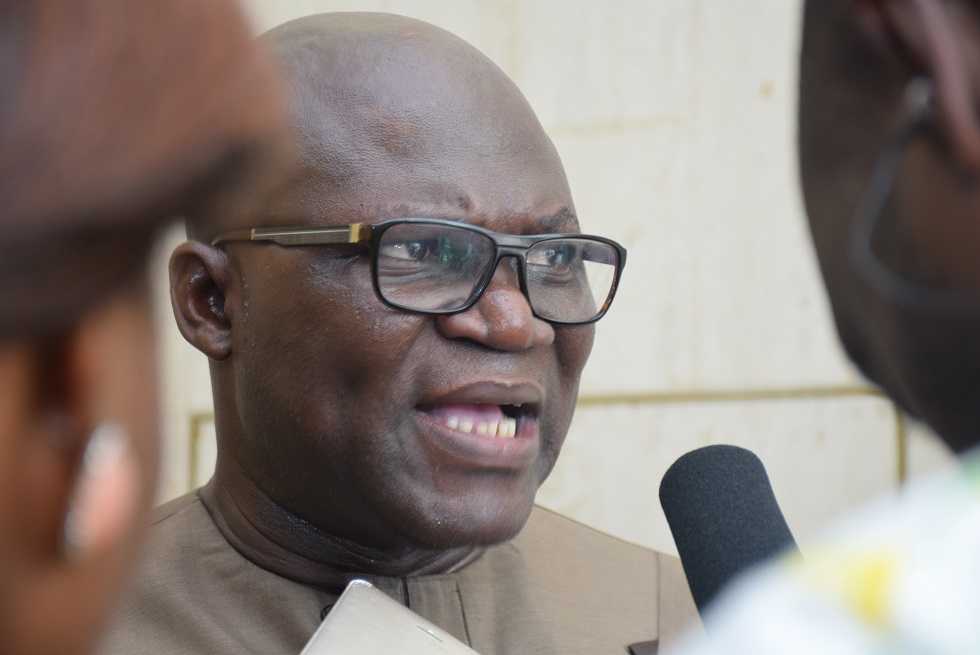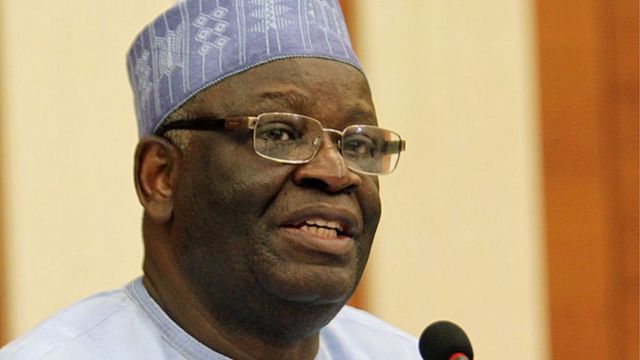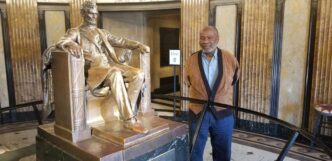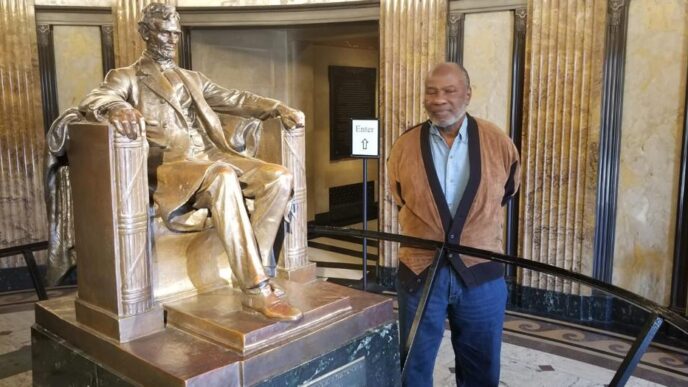Theophilus Adeleke Akinyele, officer of the order of Niger (OON) and Bobajiro of Ibadanland, was both an exemplary personality and a model public servant. This biographical statement is significant in administrative archiving of the trajectory of the Nigerian administrative history, and this is not just because biographies and autobiographies of eminent public servants and administrators fill some crucial gaps in political and administrative histories of any state. More than this, the biographical statement I began with constitutes a narrative entry point into not only the understanding of what administrative scholars are calling the golden age of Nigeria’s public service system, but also a leeway into understanding how the present rot and decline in the system could be arrested through a thoroughgoing institutional reform that is both backward and forward looking.
Pa Akinyele served humanity all his life. He was an administrator and a fine gentleman. After completing a most exemplary career as a public servant in the old western state and Oyo State, he then served as the registrar at the Obafemi Awolowo University before finally transiting through retirement into consultancy services and then the organized private sector. This distinguished career, and the lessons he learnt as a public servant were collected into his 2002 magnus opus, Beyond Pushing Files. The title alone speaks to the core of what is involved in the recuperation and revitalization of the institutional integrity of the public service in contemporary Nigeria. The nodal strength of the autobiography is that it embodies a contextual exemplification of the historical trajectory of evolutionary insights that led to our understanding of what an effective, efficient and competent public service is. And how we can begin to rethink reinventing it.
Public administration has come a long way. Indeed, it predates the idea of modern state because it consisted of a body of government officials who are in charge of ensuring the continuity of the administrative mechanism. With the ancient pharaonic society, it was this administrative necessity that facilitated the management of tax collection, the building of the pyramid and the navigation of the River Nile. But what was just a scribal necessity for those who work for the pharaohs, began to achieve the status of a tenured and salaried profession that mediated the famous Roman infrastructures, especially the aqueducts and highways. After the French Revolution of 1789, the loyalty of the civil servants shifted from emperors and monarchs to the state as an administrative unit. These historical developments fed into Max Weber’s theoretical formulation of the shapes and processes of administrative system, especially starting from the Prussian governance and military command structure. This was the basis of his development of the Weberian bureaucratic model.
Government all across the world are defined by three complementary functions: the policy, regulatory and service delivery functions. And these functions are backstopped by an efficient public administration and bureaucratic machinery. It is this efficient system that translate government policies into concrete and tangible development outcomes and dividends that positively affect the well-being of the citizens. However, the operationalization of the public service system in Nigeria comes with both a boon and a bane. On the one hand, the most significant challenge that faced the transplantation of the bureaucratic model to Nigeria, after independence, is that as a migrated structure that emerged within a specific sociocultural context, the civil service system—and the state system as an administrative unit in general—was implanted without the full complement of its underlying value framework that would have grounded its efficiency and effectiveness.
Advertisement
When the amalgamation of the Northern and Southern protectorates happened in 1914, the state system was established to facilitate the extractive objective of colonialism. And so, the system could not be grounded in the value foundation deriving from the cultural lifeworlds of the people and societies that make up precolonial Nigeria. The deconstruction of the value foundation of the administrative system becomes even more complicated because public administration experts and scholars all across Africa also failed to harness their expertise in ensuring the reconstruction of the value basis of the public institution in the values and traditions that would have instigated their resilience in assimilating the many sociocultural and political shocks they were bound to confront. And so, the bureaucratic model eventually turned out to be a mere instrument for political intervention and extractive exploitation rather than a tool for real development of the colonies.
On the other hand, however, the pioneer Nigerian public servants inherited fully the founding values and virtues which Weber made the core of the managerial model of public administration, and which the British administrative system further grounded in the Victorian ideals and moral codes founded on gentlemanliness and the imperatives of truthfulness, personal responsibility, and public accountability. These values and moral codes easily translate into an institutional morality in terms of an acute sense of duty and work ethic, noblesse oblige, deferred gratification, and integrity of service. There was also significantly a philosophical underpinning that connects the relationship between the self and service which led to the fascination with knowledge and honor as the key components of professionalism. Talents, competence and hard work combined with moral rectitude, godliness and personal discipline to determine success, well-being and career fulfilment. This moral code and imperatives were further undergirded by the understanding of the bureaucracy as a hierarchical organization functioning as a legal-rational system determined by rules, systems, processes and procedures. That organization is conceived as being neutral, efficient, precise, strict, reliable and very disciplined.
All this is supposed to articulate the understanding of the bureaucracy as a vocational calling that those who must be recruited into it must see as honorable, spiritual and value-based institution that demands their intense commitment and loyalty. For Weber, honor is the sole key that ties a public servant to the dynamics of integrity in the workplace. An honorable public official sees to the execution of a policy to the best of his ability even if she disagrees with the policy choice. This is an honorable act because it demonstrates that the bureaucrat’s sense of duty and of service overrides his personal preferences. Honor also instigates the need for spirituality which is encompassed by the search for meaning and significance that is demonstrated through the public servant’s commitment, trust and dedication to the tenets of professional service. This implies that public service transcends any mechanical sense of transactional business that brings people to the workplace without transforming their well-being. Spirituality characterizes the public servant as a selfless person with a deep sense of deferred gratification that defined the priesthood in the Levitical Order. In the Old Testament, the tribe of Levi, out of all the other tribes of Israel, had to forfeit its inheritance in the promised land in order to be able to adequately consecrate itself to the service of God. The totality of these moral imperatives is what turns the public service into a value-based institution that not only molds the actions and attitudes of the public servants, but also encompass the democratic codes that transform democratic governance.
Advertisement
A public servant, within this preceding value framework, is defined by three cogent virtues. The first is the virtue of public spiritedness. A public servant is first a servant called into a deep and committed service to others that constitute the public. This makes him or her more than a careerist professional who is solely motivated by personal preferences and the imperatives of making a livelihood. Being a public servant means that one swears fealty to the common good and the public interest. The second administrative virtue that distinguishes the public servant is professionalism grounded on expertise and competence that are earned on meritocratic basis. While public-spiritedness provides the public servant with a broad sense of occupational responsibility as the custodian of the commonwealth, it is professionalism—the occupational framework of professional conduct—that arms the public servant with specialized skills and expertise to perform whatever functions will enable the realization of the objectives of state policy.
The third and final administrative virtue is that of leadership. This encompasses public spiritedness and professionalism in ways that make the public servant more than a mere manager or administrator. This leadership virtue demands that the public servant becomes a transformational, rather than a transactional, change agent with a shared capacity that draws all relevant stakeholders into a framework of collective responsibility that makes the public service an effective and efficient mechanism for delivering public goods that activate democratic governance on behalf of the people and their well-being.
All the preceding enables us to grasp the significance of the emergence of the Nigerian pioneers of the British public service. The need to achieve law and order in the colonies demanded that the British Colonial Office train a cadre of highly skilled, loyal and dedicated public servants to implement the demands of colonial administration. This led to the emergence of the administrative generalist cadre that eventually threw up the early bureaucratic pioneers, from Simeon Adebo to Jerome Udoji to Sule Katagum to Allison Ayida, and from Abdul Aziz Attah to Prince Solomon Akenzua to Francesca Emanuel to Tejumade Alakija to Theophilus Akinyele. These pioneers were saddled with the responsibility of ensuring that the nascent Nigerian state made good on its promise to the teeming Nigerians who believed that independence would bring betterment to them. From Adebo to Akinyele, the administrative pioneers had to sustain the core of the public service as value-based institutions through a commitment to the public service as an honorable vocation that demanded they give their all in making the Nigerian state work.
A critical component of their value training derived from a model of politician-administrator collaboration that facilitates a relationship between the two for developmental progress. There are three models that account for this relationship. The first, legal or traditional model, involves the rare or ideal situation in which the minister/commissioner takes responsibility for policy making while the permanent secretary simply implement. The second model is the adversarial one—dramatized in the popular BBC sitcom, “Yes, Minister,” in which the minister and the public servant are in constant conflict over policy formulation and implementation. The third is the community model that sees both operating under a contractual obligation and therefore being mutually dependent on each other’s responsibilities. This third model might seem the most appropriate, but in reality, the relationship is a mix of the three models, with all the attendant tensions, conflicts and understanding. This is the best way I think one could see the famous Awolowo-Adebo in the old western region, or the Gowon-super permanent secretary partnership during the Nigerian Civil War; a collaboration that benchmarked Nigeria’s glorious era of distinct public administration and governance achievements.
Advertisement
The commitment to institution building in the public service that stood the administrative pioneers out as exemplary public servants include the following: (a) they were exemplary leaders in terms of the integrity they brought to service; (b) the establishment of the Public Service Commission was not just a gatekeeping mechanism to ensure meritocracy, but also a measure of integrity needed in the system; (c) Establishment control, among other internal management mechanisms, mediates the expansion of the size, scope and growth of the service; (d) the town-and-gown/policy-research collaboration facilitated a networked relationship between practitioners and academics in ways that ensured the continuing flow of ideas and innovative reflection about the optimal functioning of the system; (e) the work-life balance complemented the staff development initiatives through housing, pension and other social security schemes to facilitate performance and productivity; and (f) a developmental industrial relations ensured constant consultation that resulted in decent welfare package to improve the condition of service of the workforce.
Unfortunately, all these distinct institutional mechanisms collapsed under the burden of series of historical and administrative circumstances that consolidated a bureaucratic culture in the public service. Three significant trajectories of events jumpstarted the debilitating process of bureau-pathology in the Nigerian public service system. The first was the attempt to mediate the multiethnic nature of the Nigerian state in recruitment into the public service, and how this framework of representativeness collapsed every effort at achieving meritocracy. The second was the missed opportunity with reforming the entire system through the Udoji Commission report and its recommendation of a performance management system patterned along the imperatives of managerialism. The third and last was the massive purge of the public service in 1975 and the grounding of the culture of instant gratification that displaced that of deferred gratification.
The reform efforts to undermine the virulent effect of bureau-pathology and its terrible consequences for performance and productivity have been varied. The cumulative effort was to transform the system away from the “I-am-directed” bureaucratic culture to a more performance-oriented managerial culture that will instill value and efficiency into the system. There was, for instance a reform to redefine the role of the state in ways that allow for institutional restructuring that makes public-private partnership and other alternative service delivery approaches possible. There were also significant modernization and digitization of core operations of the civil service to eliminate non-value adding processes and to eliminate silos operations, red tapes and other bureaucratic bottlenecks. There were reforms to reengineer the MDAs operating system to hold them to some form of performance accountability using new metrics different from the APER appraisal instruments. This is, so they would be able to deliver measurable outcomes. There were series of culture change reforms to deepen the value foundation of the service, as well as reforms to resolve capacity deficits through workforce reprofiling and audit, professionalization of cadres, job evaluation rooted regrading and pay reform, systematic injection of staff skills, and the building of new skills within framework of the restoration of merit system and competency-based HRM.
What more needed to be done? To get the public service system in line with the expectation of featuring in the fourth and fifth industrial revolutions, the workforce needs to be re-professionalized within framework to reform the many reforms. This is the first step in facilitating the emergence of a new breed of public managers competent enough to bring the system into the knowledge society. This is also connected with the need to beef up the IQ through deepening the core skills and competences in project management, data science, evidence-based decision-making, acquisition of legal and regulatory skills rooted in the knowledge of market dynamics, etc. The essence is to achieve the creation of a multidisciplinary elite cadre of senior executive service (SES) that leads the charge in the institutional transformation of the system.
Advertisement
The public service requires a culture change programme that enables the putting in place of the right values enabled by significant frameworks of mental remodeling to help public servants think outside of the box. This will require value audit and cognitive redefinition to increase and improve staff capacity that enable the system to stay centered on leading change sustainably. This must be complemented by significant adjustments in the incentive structure and the entire system of motivation that manages redundancy through a redesign of the job evaluation framework that will instigate performance better. Internal control mechanisms need strengthening to ensure that the systems retain a sustained maintenance, continuous learning and relearning, incremental improvement and organizational resilience in a vulnerable, uncertain, complex and ambiguous (VUCA) environment. The public service needs to strengthen its policy-research nexus in ways that professionalize the planning and policy analysis function, deepen action and policy research, as well as achieve adequate talent and knowledge management. Lastly, strengthening the system to handle commercially-centered partnerships like the PPPs must go hand in hand with a larger vision of launching and managing a national productivity movement to reprofile national programmes and project management practices, create a new national waste reduction strategy and maintenance culture.
The effort to transform the public service system into a world class requires a blueprint that, interestingly, had already been foreshadowed by the generation of Pa Theophilus Akinyele and their capacity to embody the values and virtues that distinguishes a public service system as a worthy mechanism around which democratic governance flourishes. And that, I believe, is the legacy of that generation for current public administration in Nigeria.
Advertisement
*Excerpt from the guest lecture delivered at the 4th Theophilus & Elizabeth Akinyele Foundation Memorial Symposium held at the Theojoy Library, Theo Tower, New Bodija, Ibadan on November 21, 2024.
Prof Olaopa is the chairman, Federal Civil Service Commission.
Advertisement
email: [email protected]
Advertisement
Views expressed by contributors are strictly personal and not of TheCable.
Add a comment












